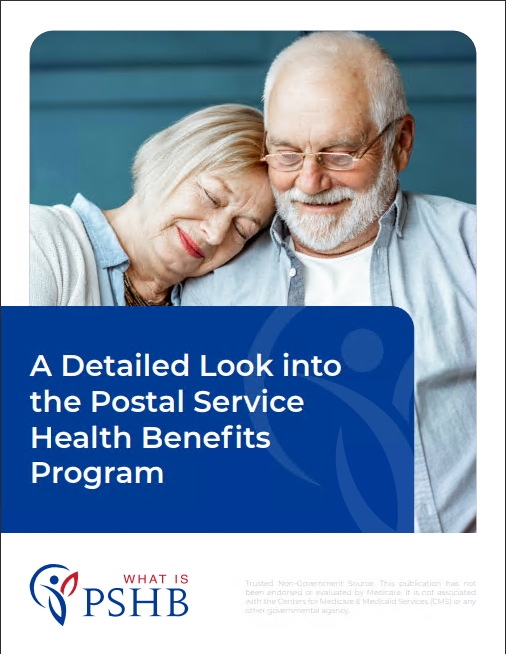Key Takeaways:
- USPS retirees and their families must enroll in Medicare Part B to maintain eligibility for the new PSHB Program starting January 1, 2025.
- Enrollment during the Special Enrollment Period in 2024 is critical to avoid late enrollment penalties and ensure continuous coverage.
Is Medicare Enrollment Required for Postal Service Retirees and Their Families in 2025?
With the implementation of the Postal Service Health Benefits (PSHB) Program set for January 1, 2025, understanding the new requirements for Medicare enrollment is crucial for USPS retirees and their families. This article will guide you through the Medicare Part B requirements, the implications of not enrolling, the enrollment process, and the benefits of Medicare enrollment for USPS retirees.
Medicare Part B Requirements for USPS Retirees
As part of the Postal Service Reform Act of 2022, USPS retirees and their eligible family members are required to enroll in Medicare Part B if they are entitled to premium-free Medicare Part A. This mandate ensures that retirees have comprehensive health coverage under the PSHB Program. The specific requirements include:
- Medicare Part B Enrollment: Retirees must enroll in Medicare Part B to be eligible for the PSHB Program. This applies to all USPS retirees who are eligible for Medicare, as well as their eligible family members.
- Special Enrollment Period (SEP): To facilitate this transition, a Special Enrollment Period will be available from April 1, 2024, to September 30, 2024. During this period, retirees can enroll in Medicare Part B without incurring late enrollment penalties.
The integration of Medicare Part B with the PSHB Program helps manage healthcare costs more effectively and ensures that retirees receive comprehensive benefits.
Eligibility Criteria
To meet the Medicare Part B requirement, USPS retirees must fulfill certain conditions:
- Age and Status: Retirees must be aged 65 or older and qualify for premium-free Medicare Part A based on their work history.
- Enrollment Timing: They must enroll during the designated SEP to avoid penalties and ensure continuous coverage. The SEP is specifically designed to accommodate those transitioning to the PSHB Program.
- Family Members: Spouses and dependent children who qualify for Medicare must also enroll in Part B to maintain their eligibility under the PSHB Program.
Meeting these criteria is essential for seamless integration into the PSHB Program and to maximize the benefits of Medicare enrollment.
Implications of Not Enrolling in Medicare for Postal Retirees
Failure to enroll in Medicare Part B can have significant consequences for USPS retirees and their families. Key implications include:
- Loss of Eligibility for PSHB: Retirees who do not enroll in Medicare Part B will lose their eligibility for the PSHB Program. This means they will not have access to the health benefits provided under this new program.
- Coverage Gaps: Without Medicare Part B, retirees may experience gaps in their healthcare coverage, leading to increased out-of-pocket costs for medical services.
- Late Enrollment Penalties: Retirees who miss the Special Enrollment Period and enroll in Medicare Part B later may face late enrollment penalties. These penalties increase the monthly premium for Medicare Part B and can be a financial burden.
Ensuring timely enrollment in Medicare Part B is essential to avoid these negative outcomes and maintain continuous health coverage under the PSHB Program.
Financial Impact
Not enrolling in Medicare Part B can result in significant financial burdens:
- Higher Medical Costs: Without Medicare Part B, retirees will have to cover the full cost of outpatient services, which can be substantial.
- Penalty Fees: Late enrollment in Medicare Part B can result in a 10% increase in premiums for each 12-month period the retiree was eligible but not enrolled. These penalties are permanent and add to the overall cost of healthcare in retirement.
- Limited Access to Care: Medicare Part B provides access to a wide range of medical services and specialists. Without it, retirees may find it challenging to receive necessary care, impacting their health and well-being.
Understanding these financial implications underscores the importance of enrolling in Medicare Part B during the SEP to maintain comprehensive and affordable healthcare coverage.
Steps to Enroll in Medicare for Postal Service Families
Enrolling in Medicare Part B involves several steps, especially during the Special Enrollment Period provided for USPS retirees and their families. Here is a step-by-step guide to ensure a smooth enrollment process:
- Receive Enrollment Package: Starting March 15, 2024, USPS will send an enrollment package to all eligible retirees and their family members. This package will include instructions, a pre-filled CMS-40B form, and a return envelope.
- Complete the CMS-40B Form: Retirees need to complete the CMS-40B form included in the package. USPS will pre-fill some sections of the form to simplify the process.
- Submit the Form: Mail the completed CMS-40B form using the provided return envelope to the Social Security Administration’s (SSA) Wilkes-Barre Direct Operations Center.
- Verification and Processing: The SSA will review and process the enrollment request. Retirees will be notified of their Medicare Part B coverage start date.
It is important to complete these steps within the Special Enrollment Period to ensure seamless integration into the PSHB Program and avoid any penalties.
Key Documents Needed
To ensure a smooth enrollment process, retirees should prepare the following documents:
- Personal Identification: Valid identification such as a driver’s license, passport, or USPS employee ID.
- Medicare Information: Proof of Medicare Part A enrollment and any other Medicare-related documents.
- Enrollment Package: The pre-filled CMS-40B form provided by USPS, along with any additional instructions included in the package.
Having these documents ready will facilitate the enrollment process and help avoid any delays or issues.
Benefits of Medicare Enrollment for USPS Retirees in 2025
Enrolling in Medicare Part B offers several benefits for USPS retirees and their families:
- Comprehensive Coverage: By combining Medicare Part B with the PSHB Program, retirees gain access to a broader range of healthcare services, including outpatient care, preventive services, and medical equipment.
- Cost Savings: Medicare Part B helps reduce out-of-pocket expenses by covering a significant portion of medical costs that would otherwise be borne by the retiree. This integration provides financial relief, especially for those with chronic conditions or high medical needs.
- Seamless Coordination of Benefits: The PSHB Program is designed to work in conjunction with Medicare Part B, ensuring that retirees receive coordinated and efficient healthcare services. This coordination minimizes the risk of coverage gaps and simplifies the management of healthcare benefits.
These benefits underscore the importance of timely enrollment in Medicare Part B for maintaining health and financial stability during retirement.
Improved Access to Healthcare
One of the primary benefits of enrolling in Medicare Part B is improved access to healthcare services:
- Broader Network of Providers: Medicare Part B expands the network of available healthcare providers, allowing retirees to choose from a wider range of doctors and specialists.
- Preventive Services: Medicare Part B covers a variety of preventive services at no additional cost, including screenings, vaccinations, and annual wellness visits. These services are essential for early detection and management of health conditions.
- Outpatient Care: Coverage for outpatient services such as physical therapy, mental health services, and durable medical equipment helps ensure that retirees receive comprehensive care without facing prohibitive costs.
These enhanced healthcare benefits make Medicare Part B enrollment a critical component of the overall health strategy for USPS retirees.
The New Medicare Enrollment Requirements
The transition to the PSHB Program in 2025 requires USPS retirees and their families to enroll in Medicare Part B. Understanding the requirements, implications of not enrolling, and the benefits of Medicare enrollment is crucial for a smooth transition. By following the steps outlined during the Special Enrollment Period and staying informed about the new health benefits program, retirees can ensure they receive comprehensive healthcare coverage and avoid potential penalties.
Contact Information:
Email: [email protected]
Phone: 3368606905
Bio:
Arline Adams is a dedicated Medicare Professional with over a decade of experience, currently
based in Greensboro, NC. With a career spanning more than 20 years in the healthcare sector,
Arline has a wealth of knowledge and expertise.
Before transitioning to her role in Medicare, Arline served as a Healthcare Administrator for VA
Clinics, Urgent Care Facilities, and Hospitalist Groups for over 10 years. Her extensive
experience in these roles provided her with a deep understanding of the complexities of
healthcare administration and patient care.
Arline holds a Bachelor of Science in Human Services and a Master of Business Administration
in Healthcare Management. In addition to her degrees, she has earned numerous Medicare and
National Carrier Certifications, underscoring her commitment to professional growth and
excellence.
Her passion lies in advocating for Medicare recipients, ensuring they receive the support and
education needed to navigate the often-complex healthcare system. Over the past 10 years,
Arline has focused on educating Medicare recipients about the various components of Medicare,
helping them understand how it can meet their healthcare and financial needs.







